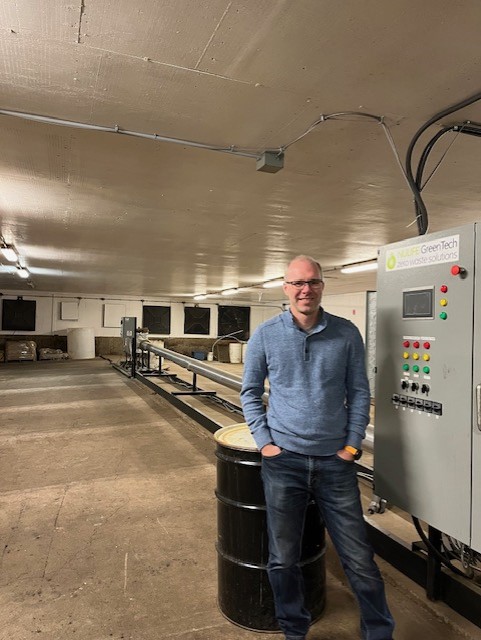NULIFE GreenTech creates carbon-friendly solution for wet industrial waste
July 6, 2023
During a trip to India in 2015, NULIFE co-founders Jerry Kristian and Brock Eidem came across a technology that could potentially solve a major environmental problem – and be profitable at the same time.
“Wet industrial waste, like the kind you get at a food-processing facility, doesn’t have an environment-friendly home,” explains Eidem. “It usually goes to landfill, where it releases methane, one of the worst greenhouse gases.”
Hydrothermal liquefaction (HTL) is an industrial process that converts wet biomass into renewable crude oil, re-creating how oil was originally formed on earth. The renewable oil can then be sold for industrial heating, or for refining into renewable diesel, gas, or jet fuel.

“We were travelling looking for technologies to invest in and thought, hey, we should try HTL in Canada,” Eidem says. The Saskatchewan-based company hired engineers, built their own HTL processor and patented their technology. They fed their prototype processor various types of industrial waste, including Tim Horton’s garbage, and successfully made bio-crude from it. Today, NULIFE has a pilot plant that can transform a tonne of biomass into a full barrel of renewable oil per day.
The company’s next step is to scale up its technology. NPC’s Proof of Concept Program is providing NULIFE with $250,000 to help build and staff an advanced pilot plant that will process four wet tonnes of biomass into three barrels of renewable oil per day. The new plant is expected to be completed this summer and operating by fall 2023.
According to Eidem, they’ll also use NPC funding to validate the economics of the scale up. “We want to see how much the plant costs to operate, its reliability, and how efficiently it can convert the biomass into renewable oil.”
NULIFE’s business model co-locates plants on or near customers’ site. “We own and operate the plant, so there is no capital cost to the customer,” says Eidem. “They simply pay us a processing fee and we sell the renewable oil that’s coming out.”
Their innovative model also uses a modular design – a series of 60-foot-long processors that can be multiplied and stacked, depending on the volume of waste a customer produces. Processors are all manufactured in one Saskatchewan location and transported to the customer, which significantly reduces costs.
NULIFE has already been recognized globally for their business-savvy approach, including as one of Foresight’s 50 Most Investable Clean Tech companies in 2022. NULIFE was also the only Canadian company selected out of 750 global applicants by the accelerator Repsol Foundation.
“NPC is essential to our success,” says Eidem. “They’re helping us validate our technology and de-risk the opportunity – for investors, customers and partners.”
Want to learn more about our Commercialization Programs and other ways we help advance bio-based innovation? Contact your local Regional Director.
 Back
Back